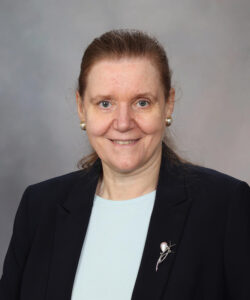Dr. Holers has moved his primary research activities to the natural history and pathogenesis of rheumatoid arthritis (RA) prior to the onset of clinically apparent arthritis. He co-founded, with Jill Norris, MD, PhD, Studies of the Etiologies of Rheumatoid Arthritis (SERA), a multi-institutional project focused on mechanism-based and epidemiologic assessments of individuals at risk for future RA. These highly collaborative studies have provided strong evidence for mucosal driver mechanisms underlying the development of autoimmunity and arthritis, identified a number of potential therapeutic strategies during this period, and led to the first RA prevention trial in the U.S. In recognition of these efforts, Dr. Holers was elected to the American Society for Clinical Investigation and the Association of American Physicians.
For more than 30 years, Dr. Holers has worked as a volunteer for the ACR and the Rheumatology Research Foundation. Highlights include serving as chair of the ACR Committee on Research, the Foundation Scientific Advisory Council, the ACR Task Force on Research Funding and the Division Directors Special Committee. He also served as co-chair of the ACR Blue Ribbon Task Force on Academic Rheumatology and as a member of the Board of Directors of the ACR and the Foundation. Most recently, he served as president of the Foundation and as a member of the ACR Executive Committee. A major focus of Dr. Holers’ efforts in these roles has been to support the clinical and academic workforce, expand rheumatology research and emphasize the inter-related importance of the health of both private community and academic clinical practices.

Dr. Weyand
Distinguished Basic/Translational Investigator Award
The Distinguished Basic/Translational Investigator Award, recognizing outstanding contributions to the field of rheumatology, was presented to Cornelia Weyand, MD, PhD, professor of medicine and immunology at the Mayo Clinic College of Medicine and Science and the Mayo Clinic Alix School of Medicine, Rochester, Minn. She holds joint appointments in the Departments of Immunology and Cardiology and leads the Program in Immunity and Inflammation, a translational program bridging basic immunology to patient care. Dr. Weyand also remains a faculty member at Stanford University School of Medicine, California, as professor emerita.
Dr. Weyand earned her medical degree in Germany, followed by research training in immunology at the German Cancer Research Center, Heidelberg. She completed her residency at Hannover Medical School in Germany and a fellowship in immunology and rheumatology at Stanford University. Dr. Weyand joined the Mayo Clinic in 1990, became a professor of medicine and immunology in 1998 and the Barbara Woodward Lips Professor of Medicine and Immunology in 2000. From 2004 to 2009, she was the David Lowance Professor of Medicine at Emory University, Atlanta, where she served as the director of the Lowance Center for Human Immunology and the Division of Rheumatology. In 2009, she returned to Stanford University, where she became the chief of rheumatology and the director of the Center for Translational Medicine.



